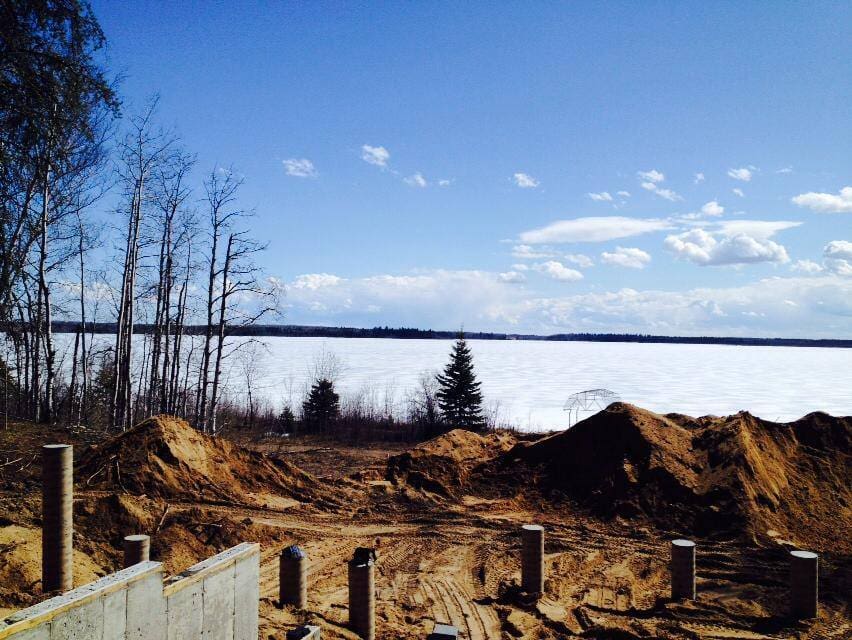When it comes to building your dream home, more often than not you will be buying a new piece of raw land to build on. In some cases purchasing the raw land can be more stressful than the process of building your log home. So to help you out, here are 5 things to consider when looking to purchase raw land for building a log home or cabin.
Step 1: What do you require of the site?
The first step is to clearly identify what you are looking for in a property. It’s important to outline what the “musts” are versus what the “likes” are. This can help save you time and ensure that the properties you’re looking at will meet the criteria. Some of the questions you might want to ask include:
- Are there any special features you want your property to have? (scenic view, waterfront, forest, hillside)
- What types of buildings will you be building and how many? (home, detached garage, outbuildings)
- Will you be operating a business from this location in addition to living on it?
- Will you have animals or a garden?
Step 2: Are there accessible utilities at the site?
If you are building on raw land there may not be access to major utilities like sewer, water and power. It’s important to do your research and find out how much it will cost to have these utilities brought in or if there are other options available. If you are in an area that is just starting to develop, find out what other development plans are taking place as this can help you make some decisions. If additional properties will be going in over the next year or two, it may be beneficial for you to use generators and other means of energy for the first year or two. And then, once the additional properties are built, either share the cost to have the utilities brought in with the other homeowners, or hopefully there is a great enough demand that the utility companies will extend their services at their own expense.
Step 3: Is the land really buildable?
There is nothing worse than buying a piece of property and mapping out the plans for your dream home only to find out that you can’t build due to zoning or
environmental factors. In addition to finding out what the availability is for utilities, you also want to find out whether there are any building restrictions and what they are.
Features like creeks, lakes and hillsides can make a property appealing, but you also want to make sure that the property won’t be affected by sliding earth if an earthquake occurs, flooding in the spring, or cause harm to spawning fish in a creek.
It’s also important to check the zoning restrictions of the land. Is there a limit to the size of the property or the number of buildings, or are there restrictions on the use of the property? The current property owner may not be aware of all the zoning details in the area so check with the local Planning and Zoning offices.
Step 4: What is the true cost of the property?
The sale price of the property may not provide all of the details and costs of the property. As described above you may have other costs to consider before you can even begin to build on the property:
- Rezoning, subdividing and permits.
- Property taxes and fees.
- Mineral rights.
- Utilities: Sewer, hydro, gas and water.
- Access to the property via road or boat.
Step 5: Talk to the experts.
Before you purchase a property to build on it’s important to talk to the experts and get other opinions. Speaking to your local real estate agent is a great start. If there are neighbors close by, they can be a great resource and provide insight into some of the issues or concerns that the property may have that you may not be aware of.
For many of our clients that we are building projects for, we will visit a potential piece of property with them when possible and help them through some of the challenges like zoning and permits. It’s comforting to know that you have someone helping you through the process that has done it all before and can give you advice along the way.
Hopefully this article has helped shed some light on the questions and considerations you need to explore before purchasing a property. If you have questions about a property that you are looking at, and if it is buildable, we would be happy to discuss some options with you.



